15 Superfoods to Improve Memory and Focus in Your 50s
While a balanced diet is important when it comes to overall health and longevity, certain foods pack more of a nutritional punch than others. "Superfood" is a buzzy term used to describe nutrient-dense foods, usually fruits, veggies, nuts, and lean meats, that are powerhouses when it comes to health benefits. As you get older, certain superfoods can be especially helpful in improving memory and focus, explains Alexandra Dusenberry, MS, RDN, Lead Dietitian at the renowned Cal-a-Vie Health Spa in San Diego, California. Here are 15 she recommends.
Blueberries
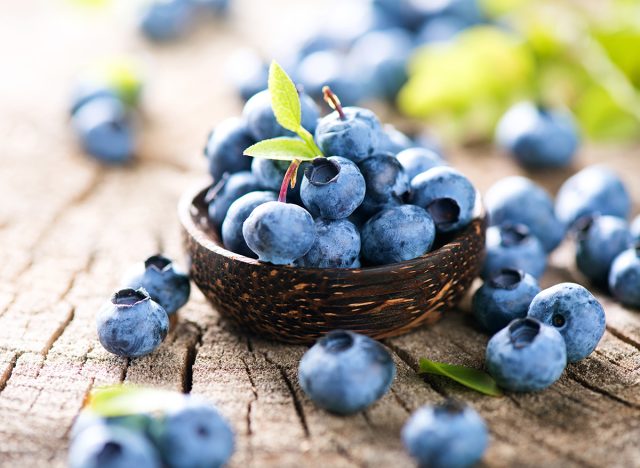
Blueberries are her first pick. "These anthocyanin-rich berries have been shown to be neuroprotective by reducing the levels of oxidative stress in the brain," she says. She recommends one cup per day to "help to improve memory and blood flow through regions of the brain associated with cognitive performance."
Walnuts
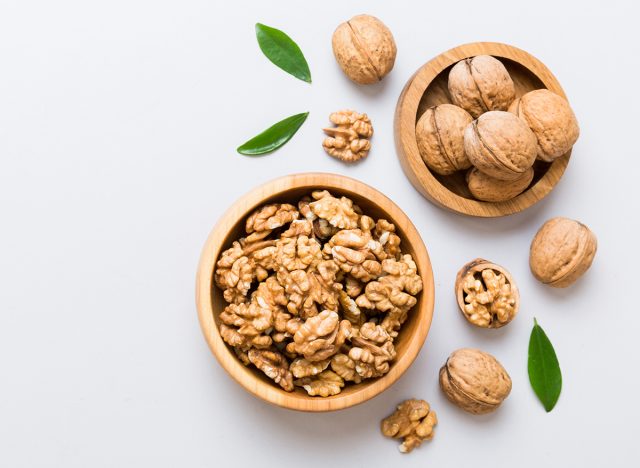
Walnuts are great for your memory. "Besides literally looking like a brain, walnuts provide an omega-3 fatty acid called ALA, which can help to reduce brain inflammation," says Dusenberry. "Studies show 1-2 ounces per day can improve cognitive function."
Salmon
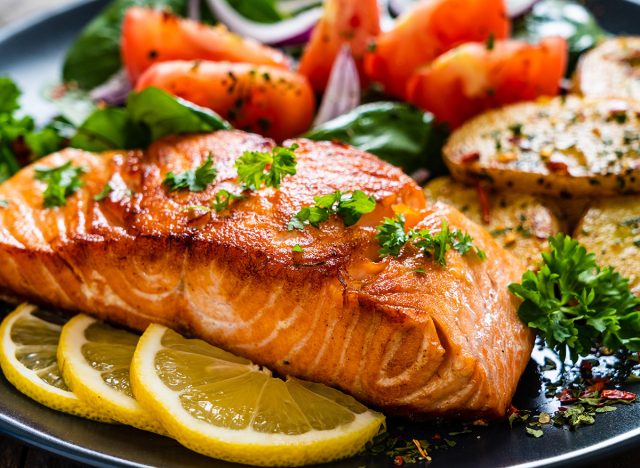
Salmon is a great protein source containing high levels of omega-3 fatty acids such as DHA, "which makes up a significant portion of the brain's fatty tissue," she says. "Deficiencies in omega-3s in the diet can result in negative cognitive changes over time."
Matcha
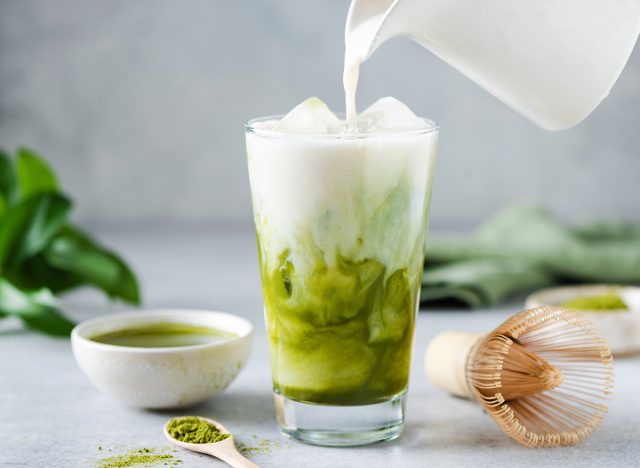
Matcha is a "vibrant superfood" that contains brain-protective antioxidants like EGCG and a focus-enhancing amino acid called -theanine, explains Dusenberry. "Try this superfood as a freshly ground tea-the Cuzen Matcha Machine makes it seamless to whip up at home."
Pomegranate
Pomegranate juice is popular for a reason. "The seeds and juice of the pomegranate contain a potent antioxidant called resveratrol," explains Dusenberry. "Research shows that resveratrol can protect neurons by scavenging for free radicals, which can help to preserve and improve memory."
Avocado
Avocado is also on her list. "The creamy goodness that is avocado contains a slew of antioxidants that enhance brain function, and B vitamins such as folate to improve and support neurotransmitter synthesis," explains Dusenberry.
Lion's Mane Mushroom
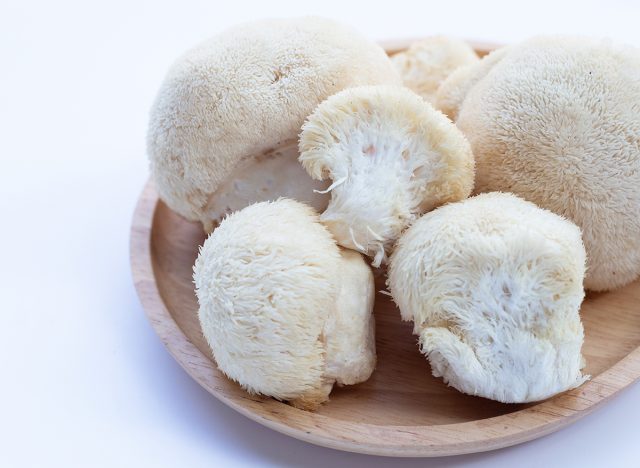
Lion's mane mushrooms are great for your brain. "Aptly named for its appearance, lion's mane mushroom can help to produce more nerve growth factor in the brain, stimulating the production of neurons for improved cognitive function," says Dusenberry.
Turmeric
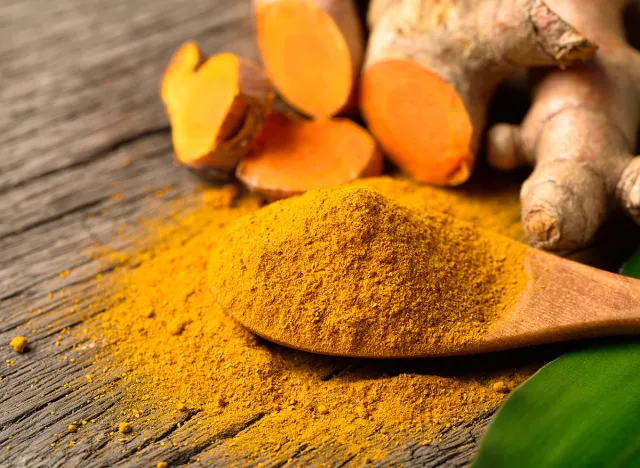
Turmeric is a spice you should keep on hand. "This golden yellow spice contains antioxidants and anti-inflammatory compounds that have been shown to help reduce the build-up of beta amyloid plaque in the brain, which may be one of the underlying drivers of cognitive decline," she maintains.
Eggs
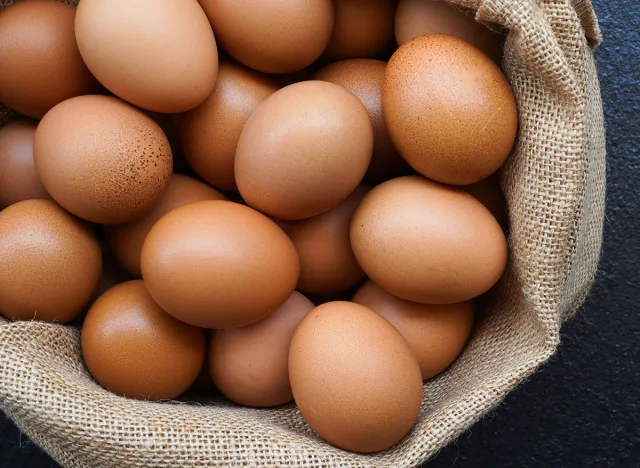
When you cook eggs, make sure to keep the yolk. "Whole eggs (namely the egg yolks) contain a nutrient called choline, which is a micronutrient that helps to create acetylcholine, a neurotransmitter that helps to regulate mood and memory," explains Dusenberry.
Arugula
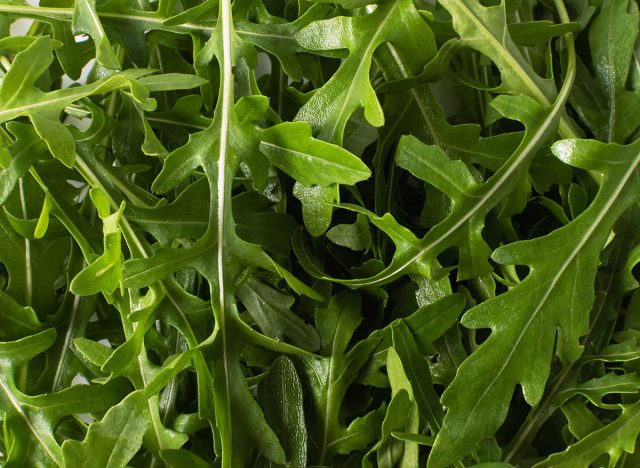
Consider adding arugula to your next salad. "Eating at least 1 cup of raw, dark greens may slow the cognitive decline and changes linked to aging," says Dusenberry. "The nitrates that naturally occur in these greens also help to enhance blood flow to the brain."
RELATED: 10 Habits for Keeping Off Fat Forever
Olive Oil

When it comes to oils, opt for olive oil, Dusenberry encourages. "This healthy fat source is rich in monounsaturated fats, which may promote the creation of more neurons in the brain, in a process called neurogenesis."
Cacao
Cacao, similar to cocoa, is great for your brain. "The flavonoids in cacao help to increase blood flow to the brain, which may help with improving memory and can help to protect against dementia," explains Dusenberry.
Goji Berries

Toss some goji berries into your next smoothie or smoothie bowl. "This small red fruit is a rich source of two antioxidants- beta carotene and zeaxanthin," explains Dusenberry. "Studies show consuming goji berries can help to improve focus, mental acuity, and calmness compared to placebo."
Saffron
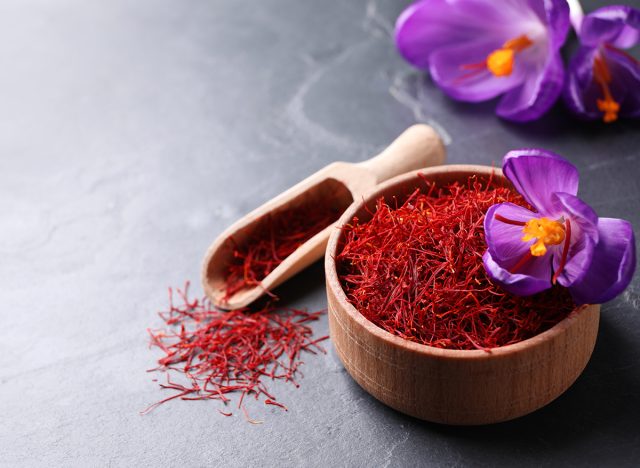
Saffron, a brightly colored spice, has been shown to boost dopamine levels naturally for improved mood and concentration, says Dusenberry. "It also helps to reduce neuroinflammation in the brain," she adds.
RELATED: 20 Breakfast Ideas to Lose Fat
Broccoli Sprouts
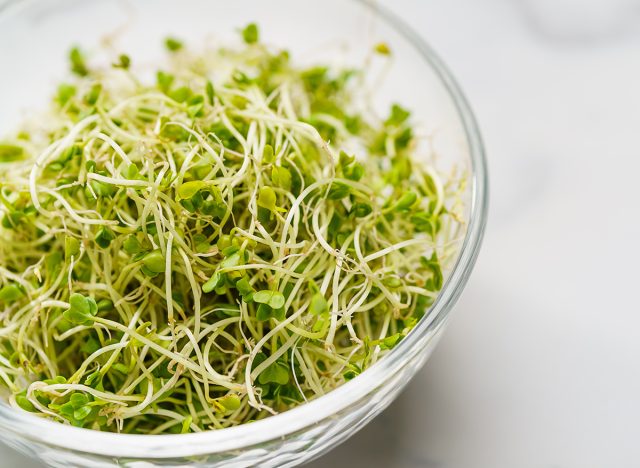
Broccoli sprouts are an increasingly popular health food for a good reason. "These sprouts serve as a dense source of sulforaphane, which can reduce nerve inflammation in the brain and helps to suppress oxidative stress and inflammation that otherwise slow down cognitive function," says Dusenberry.
💪🔥Body Booster: Eat pomegranates to protect your memory. The seeds and juice have a healthy substance called resveratrol that's good for your brain. And if you enjoyed this article, take advantage of these 20 Superfoods for People Over 50.




